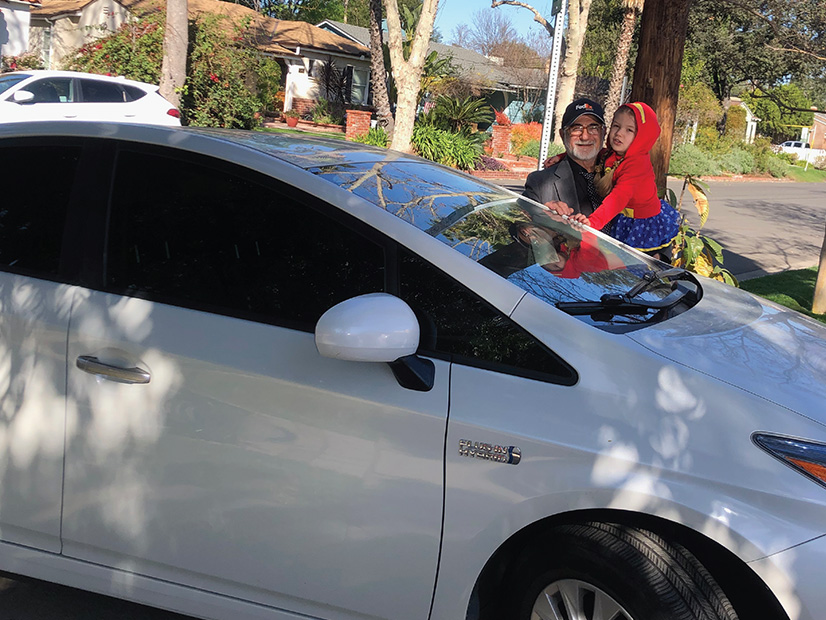
The California Air Resources Board on Friday approved a $1.5 billion clean transportation funding plan that includes $515 million for the Clean Vehicle Rebate Project, the state’s popular electric car incentive program.
The plan also includes $10 million for a new electric bike incentive program and $75 million for Clean Cars 4 All, a program that offers lower-income residents incentives to scrap their old cars and replace them with zero- or near-zero emission vehicles. The program is available in five of the state’s 35 air districts, but an expansion is planned.
On the heavy-duty side, the funding package contains $570 million for the Hybrid and Zero-Emission Truck and Bus Voucher Incentive Project (HVIP). Within that amount, $70 million is set aside for zero-emission transit buses; $130 million for zero-emission school buses; and $75 million for zero-emission drayage trucks.
The spending plan allocates $195 million to the Clean Off-Road Equipment Voucher Incentive Project (CORE), which provides incentives for equipment such as zero-emission tractors and forklifts.
CARB staff said funding for the CORE program had been increased and that the range of eligible equipment was expanded. The program sets aside $30 million in incentives for small business and sole-proprietor landscaping companies.
Record-setting Funding
The CARB board on Friday approved a resolution adopting the fiscal year 2021/22 funding plan. The agency described the funding package as its largest for clean transportation, more than twice the amount of the previous largest investment.
“This unprecedented mix of incentives and funding will continue to support our equitable transition to zero-emission cars and accelerate the commercialization of zero-emission technologies for medium and heavy-duty trucks and buses,” CARB Chairwoman Liane Randolph said in a release.
The state general fund will contribute $838 million of the funding, and $595 million will come from the state’s cap-and-trade program. The Air Pollution Control Fund and the Air Quality Improvement Program account for the remainder.
Other pieces of the plan include $45 million for replacing diesel trucks with trucks that meet a low-nitrogen oxide standard through the state’s Carl Moyer program. There’s also $180 million in incentives for alternatives to agricultural burning in the San Joaquin Valley.
CVRP Changes
CARB announced in April that funding was rapidly running out for its Clean Vehicle Rebate Project (CVRP), as electric-vehicle purchases rebounded more quickly than expected during the COVID-19 pandemic. (See Shortfall Looms for Calif. EV Rebate Program.)
According to CARB, almost 65% of EV owners in the state have received a rebate through CVRP, a program that was launched in 2010 and had issued more than $926 million in rebates as of April.
The $515 million approved on Friday for CVRP is intended to last for three years, CARB staff said. During that time, CARB plans to “ramp down” the program and shift the focus to lower-income car buyers.
A first phase of changes will be implemented after 1 million EVs are sold in California, but not sooner than February 2022. At that point, CARB has proposed lowering the income cap for standard rebates and reducing the cap on manufacturer’s suggested retail price for smaller vehicles.
When EV sales in the state hit 1.25 million, but not sooner than February 2023, the income cap for standard rebates will be further lowered, rebate amounts will be reduced and plug-in hybrids will be dropped from the program.
Some members of the public who commented during Friday’s board meeting objected to the proposed changes to CVRP.
Anthony Bento, director of legal and regulatory affairs at the California New Car Dealers Association, said the incentive program is valuable but is “undermined by its complexity, particularly with respect to eligibility.”
Bento said the group is concerned that the proposed changes would make matters worse.
“In particular, that two-phase reduction in income caps and vehicle eligibility creates needless confusion,” he said.
Eileen Tutt, executive director of the California Electric Transportation Coalition, said in a letter to the CARB board that reducing the CVRP income cap “serves only to confuse and frustrate both middle-class consumers and auto dealers and reduce the market for EVs.”
Tutt described the proposed changes in income caps as arbitrary.
“The phases are proposed even though there is no data indicating these phases are related to consumer response or market viability of EVs,” she said.
CARB board member Daniel Sperling also urged the agency to be cautious in making changes to CVRP. He disagreed with the idea of dropping plug-in hybrids from the program as part of the second phase of changes.
While many people can switch to battery-electric vehicles without much trouble, especially if they own multiple cars, the change may be more difficult for others such as apartment dwellers, said Sperling, who is founding director of the Institute of Transportation Studies at the University of California, Davis.
In addition, Sperling called for using some of the money in the spending package to assess the effectiveness of programs being funded.
“Making sure we’re investing our money wisely and especially looking to the future,” Sperling said. “It can be built into every program, and I think we need to be thinking along those lines more.”



